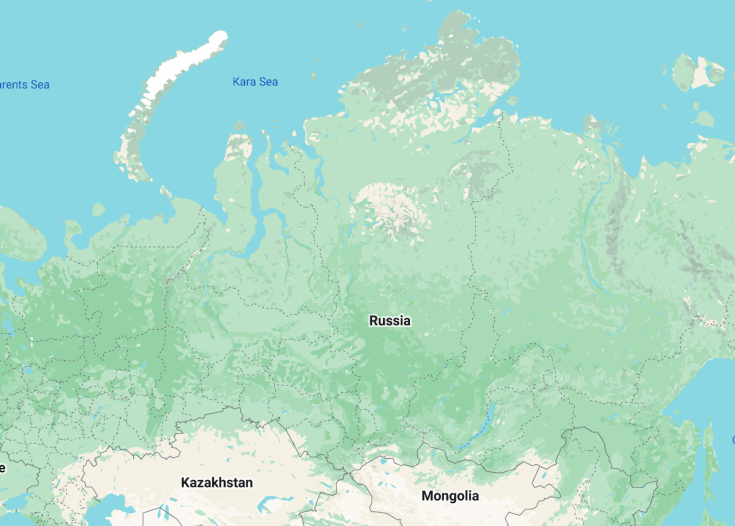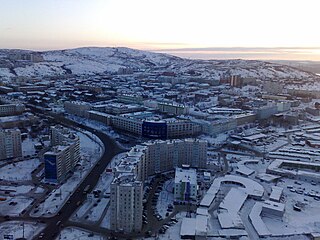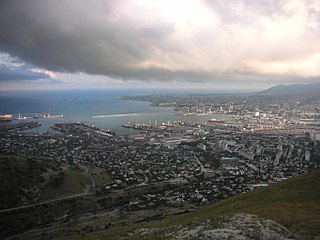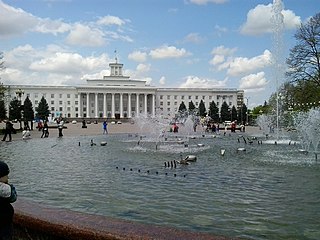Russia, the world’s largest country, spans Eastern Europe and northern Asia, offering an unparalleled tapestry of history, culture, and landscapes. From the historic domes of Moscow and the imperial elegance of St. Petersburg to the vast Siberian wilderness and the scenic Trans-Siberian Railway, the nation unfolds a rich palette of experiences. Whether it’s the melancholy beauty of its literature, the enigmatic charm of its cities, or the majesty of its natural wonders, Russia beckons with a myriad of treasures waiting to be explored.
Opt for the Trans-Siberian Railway journey; it’s a once-in-a-lifetime experience that unveils Russia’s vastness and diversity.
While in Moscow, don’t miss the iconic Bolshoi Theatre. Pre-booking tickets ensures a seamless cultural indulgence.
Top destinations in Russia
Russia: A Journey into the Land of Wonders
| Capital | Kremlin |
| Time in Russia | GMT+3 |
| Language spoken | Russian |
| Population | 144 million (World Bank) |
| Religion | Christianity (72.5%), Islam (6.5%), Others (21%) |
| Currency | Russian Ruble (RUB) |
| Airports | Moscow Domodedovo Airport St. Petersburg Pulkovo Airport Sochi International Airport |
Russia, the world’s largest country, spans Eastern Europe and northern Asia, encompassing a vast expanse of terrains and climates. From the frozen tundras of Siberia to the historic streets of Moscow and Saint Petersburg, Russia’s landscapes are as diverse as its cultural heritage. Historically, the nation has been a significant player on the world stage, with its roots tracing back to the medieval state of Rus. Over the centuries, Russia has seen the rise of tsars, the tumultuous revolution, the establishment of the Soviet Union, and its subsequent dissolution. Each era has imprinted indelible marks on the nation’s identity, creating a rich tapestry of history, art, and traditions that continue to influence global geopolitics and culture.
Where is Russia located?
Russia is the largest country in the world, spanning over two continents—Europe and Asia. It stretches across 11 time zones and borders 14 countries, including Norway, Finland, China, and Kazakhstan. Its diverse landscapes range from the frozen tundra of Siberia to the picturesque shores of the Black Sea. With such a vast territory, Russia offers endless opportunities for exploration and discovery.
What is Russia famous for?
Russia is famous for its iconic landmarks, rich history, and contributions to art, literature, and science. From the grandeur of the Kremlin and the beauty of the Trans-Siberian Railway to the masterpieces of Tolstoy and Dostoevsky, Russia has left an indelible mark on the world. It is also renowned for its ballet and classical music traditions, with the Bolshoi Theatre and the Mariinsky Theatre being among the world’s most prestigious cultural institutions.
History
Ancient Tribes and Kievan Rus (9th century-1237)
The vast expanse of Russia has long been inhabited by various tribes and groups. By the 9th century, the East Slavs began to coalesce into territorially organized entities, with the most prominent being the Kievan Rus. Centered in Kiev, this federation is considered the cultural ancestor of both Russia and Ukraine. It was during this period that Christianity was adopted, profoundly influencing the spiritual and cultural life of the region. However, internal feuds and external invasions, particularly from the Mongols, led to the decline of the Kievan Rus.
Mongol Yoke and the Rise of Moscow (1237-1480)
With the Mongol conquest, Russia entered a period often referred to as the Mongol Yoke. The Mongol-Tatar rule restructured the political landscape, leading to the rise of regional powers. Among them, the Principality of Moscow began to assert its dominance, successfully consolidating territories. By the late 15th century, Moscow had established itself as the political and spiritual center, leading efforts to liberate Russia from Mongol dominance.
The Tsardom and Imperial Era (1547-1917)
From the mid-16th century, Russia transformed from a principality to a tsardom with Ivan IV (Ivan the Terrible) being crowned the first Tsar of Russia. This era saw territorial expansion, cultural flowering, and increased centralization. Peter the Great’s reign marked the start of the Imperial Era, emphasizing modernization, Europeanization, and expansionism. St. Petersburg was founded as the new capital, representing Russia’s window to the West. By the 19th century, Russia emerged as one of the great powers of Europe, yet also grappled with internal socio-political unrest, leading to the 1917 Revolution.
Soviet Period (1917-1991)
The Revolution of 1917 heralded the end of the Russian Empire and the birth of the Soviet Union. Under the leadership of figures like Lenin and later Stalin, the country underwent radical transformations, including industrialization, collectivization, and political centralization. While the USSR emerged as a global superpower, especially after World War II, it also experienced significant tensions, both internally (such as the Great Purge) and externally (Cold War with the US). By the late 20th century, under the leadership of Mikhail Gorbachev, reforms like perestroika and glasnost were introduced, but they inadvertently sped up the dissolution of the Soviet Union in 1991.
Contemporary Russia (1991-Present)
Post-1991, the Russian Federation emerged, marking a period of significant challenges and reforms. Under the presidency of Boris Yeltsin, the country transitioned to a market economy, though this era was marred by economic crises and political upheaval. The 21st century, particularly under the leadership of Vladimir Putin, has seen Russia reasserting its role on the global stage, pursuing policies that often juxtapose its Soviet past with modern aspirations. Contemporary Russia continues to evolve, balancing its rich history with its vision for the future.
Visit Russia
What to see and do in Russia
Russia offers a wealth of attractions and activities for visitors to explore. Here are some top recommendations:
- Visit the iconic Red Square in Moscow, home to the stunning St. Basil’s Cathedral and the historic Kremlin.
- Explore the world-famous Hermitage Museum in St. Petersburg, which houses a vast collection of art and historical artifacts.
- Take a trip to the beautiful Lake Baikal, the deepest lake in the world, located in Siberia.
- Experience the unique culture of the Russian countryside by visiting traditional villages and enjoying traditional folk performances.
- Marvel at the architectural wonders of the Golden Ring cities, including Suzdal, Vladimir, and Sergiev Posad.
- Discover the natural beauty of Kamchatka, known for its volcanoes, hot springs, and diverse wildlife.
Short tile about events in Russia
Russia hosts a wide variety of events throughout the year, catering to different interests and preferences. From festivals celebrating Russian culture to international sporting events, there is something for everyone:
- The White Nights Festival in St. Petersburg, held during the summer months, features a series of cultural events, including performances at the Mariinsky Theatre and the spectacular Scarlet Sails celebration.
- The Moscow International Film Festival showcases the best of Russian and international cinema, attracting filmmakers and industry professionals from around the world.
- The Russian Winter Festival, held in Moscow and other cities, offers a festive atmosphere with ice sculptures, traditional music and dance performances, and delicious Russian cuisine.
- Sporting enthusiasts can enjoy events such as the Russian Grand Prix in Sochi, international ice hockey tournaments, and the FIFA World Cup, which Russia hosted in 2018.
Best time to visit Russia
The best time to visit Russia depends on the specific region and activities you plan to engage in. Generally, the summer months of June to August offer pleasant weather and longer daylight hours, making it ideal for exploring cities and outdoor attractions. However, popular tourist destinations can be crowded during this time.
For those interested in winter activities, such as skiing or experiencing the Russian winter wonderland, the months of December to February offer opportunities for snowy adventures. However, be prepared for cold temperatures and shorter daylight hours.
Spring (April to May) and autumn (September to October) can also be good times to visit, with milder weather and fewer tourists. These seasons provide a chance to witness the beautiful changing colors of nature and potentially enjoy lower prices for accommodation and attractions.
Is Russia worth visiting?
Russia is a country of immense cultural, historical, and natural significance. Its rich heritage, diverse landscapes, and vibrant cities make it a fascinating destination for travelers. From the iconic landmarks of Moscow and St. Petersburg to the breathtaking beauty of Siberia and the Russian Far East, Russia offers a unique and unforgettable experience.
However, it’s important to note that Russia is a vast country, and traveling within its borders can be challenging due to its size and infrastructure. Language barriers and cultural differences may also present some obstacles for tourists. Additionally, certain regions may require special permits or have specific travel restrictions.
Despite these challenges, for those willing to embrace the adventure and immerse themselves in Russian history and culture, the rewards are plentiful. Russia’s rich traditions, stunning architecture, and warm hospitality make it a destination well worth exploring.
Common questions
What are the must-visit attractions in Russia?
What is the best time to visit Russia?
What are the top dishes to try in Russia?
- Borscht: A beetroot soup often served with sour cream.
- Pelmeni: Dumplings filled with meat, fish, or mushrooms, typically served with sour cream or butter.
- Beef Stroganoff: Tender strips of beef sautéed with mushrooms and onions in a rich sour cream sauce.
- Blini: Thin pancakes served with various fillings such as caviar, smoked salmon, or sour cream.
- Olivier Salad: A traditional Russian salad made with potatoes, carrots, peas, pickles, eggs, and mayo.
These dishes offer a taste of Russia’s culinary heritage and are a must-try for food enthusiasts.
Which cities in Russia are worth visiting besides Moscow and St. Petersburg?
- Kazan: Known for its diverse culture and stunning architecture, including the Kazan Kremlin.
- Yekaterinburg: A vibrant city with a mix of modern and historical attractions, such as the Church on the Blood.
- Sochi: A popular resort city located on the Black Sea coast, offering beautiful beaches and outdoor activities.
- Novosibirsk: The largest city in Siberia, known for its thriving arts scene and the impressive Novosibirsk Opera and Ballet Theatre.
- Vladivostok: A port city on the Pacific coast, offering a mix of modern and historic attractions and stunning coastal views.
Visiting these cities provides a chance to experience the diversity of Russia beyond its two most famous destinations.
What are some unique cultural aspects of Russia?
- Russian Cuisine: Sample traditional dishes like borscht, pelmeni, and blini.
- Matryoshka Dolls: Explore the artistry behind these nesting dolls and consider purchasing one as a souvenir.
- Ballet and Opera: Attend a performance at one of Russia’s renowned theaters, such as the Bolshoi Theatre in Moscow or the Mariinsky Theatre in St. Petersburg.
- Russian Folklore: Experience traditional dance, music, and storytelling through performances and cultural events.
- Russian Literature: Discover the works of famous Russian writers like Leo Tolstoy, Fyodor Dostoevsky, and Anton Chekhov.
These cultural aspects provide glimpses into Russia’s history, traditions, and artistic expressions.
What are the key historical events and landmarks in Russia?
- The Russian Revolution: Explore the history surrounding the overthrow of the Russian monarchy in 1917.
- The Siege of Leningrad: Learn about the heroic resistance of the city during World War II and visit the museums and memorials dedicated to this event.
- The Trans-Siberian Railway: Discover the iconic railway that traverses Russia, linking Moscow to Vladivostok, and enjoy breathtaking views along the way.
- The Catherine Palace: Visit this opulent palace in St. Petersburg, known for its stunning Amber Room and extensive gardens.
- The Battle of Stalingrad: Gain insights into one of the bloodiest battles in history and explore the memorials and museums commemorating this event.
These historical events and landmarks offer a deeper understanding of Russia’s past and its place in world history.
What are the best outdoor activities in Russia?
- Hiking in the Caucasus Mountains: Explore the beautiful trails and breathtaking peaks of this mountain range.
- Dog Sledding in Siberia: Experience the thrill of mushing through the snowy Siberian wilderness.
- White Water Rafting in Altai: Navigate the thrilling rapids of the Katun River in the Altai Mountains.
- Ice Fishing on Lake Baikal: Try your hand at ice fishing on the world’s deepest and oldest freshwater lake.
- Skiing in Krasnaya Polyana: Hit the slopes of this popular ski resort, located near Sochi.
These outdoor activities provide a unique way to appreciate Russia’s natural beauty and adventure opportunities.
What are the most famous Russian festivals and celebrations?
- White Nights Festival in St. Petersburg: Enjoy a series of cultural events, concerts, and fireworks that take place during the summer solstice.
- Maslenitsa: Celebrate the arrival of spring with this lively festival, featuring traditional games, music, and the indulgence of blini.
- Victory Day: Commemorate the end of World War II with parades, fireworks, and ceremonies that take place across the country on May 9th.
- Scarlet Sails in St. Petersburg: Witness the breathtaking spectacle of a ship with scarlet sails sailing along the Neva River, accompanied by fireworks and music.
- Golden Mask Festival: Experience the best of Russian theater during this prestigious festival, which showcases outstanding performances and theatrical productions.
These festivals and celebrations offer a chance to immerse yourself in Russia’s culture, traditions, and vibrant atmosphere.
What are the best souvenirs to buy in Russia?
- Matryoshka Dolls: These beautifully painted nesting dolls are a classic Russian souvenir.
- Samovar: A traditional Russian tea urn that adds an authentic touch to any tea lover’s collection.
- Amber Jewelry: Russia is known for its high-quality amber, and you can find intricate jewelry pieces made from this fossilized resin.
- Ushanka: A warm and iconic Russian fur hat, perfect for cold winters or as a stylish accessory.
- Khokhloma Painting: Traditional Russian wooden items adorned with vibrant and intricate flower patterns, adding a touch of Russian folk art to your home.
These souvenirs capture the essence of Russian culture and craftsmanship, making them meaningful keepsakes.
What are the visa requirements for traveling to Russia?
What are the transportation options for getting around Russia?
- Domestic Flights: Russia has an extensive domestic flight network, making it convenient to travel between major cities.
- Trains: The Russian rail system, including the famous Trans-Siberian Railway, provides an efficient and scenic way to travel across the country.
- Metro: The metro systems in Moscow and St. Petersburg are extensive and reliable, offering a convenient way to navigate these cities.
- Taxis and Ride-Sharing: Taxis and ride-sharing services like Uber are available in major cities, providing a convenient way to get around locally.
- Buses: Buses are a common mode of transportation for shorter journeys within and between cities.
It’s recommended to research and plan your transportation options ahead of time based on your itinerary and preferences.
What are the safety precautions to take when visiting Russia?
- Secure Your Belongings: Keep your valuables and important documents in a safe place, such as a hotel safe or a hidden pocket.
- Be Vigilant: Stay aware of your surroundings and be cautious in crowded areas to avoid pickpocketing or other potential risks.
- Use Licensed Taxis: When taking a taxi, opt for licensed and reputable services to ensure your safety.
- Follow Local Laws and Customs: Familiarize yourself with local laws and customs to avoid any legal or cultural misunderstandings.
- Stay Connected: Ensure you have access to reliable communication, such as a local SIM card or a functioning mobile internet connection.
By taking these safety precautions, you can have a safe and enjoyable experience during your visit to Russia.


















